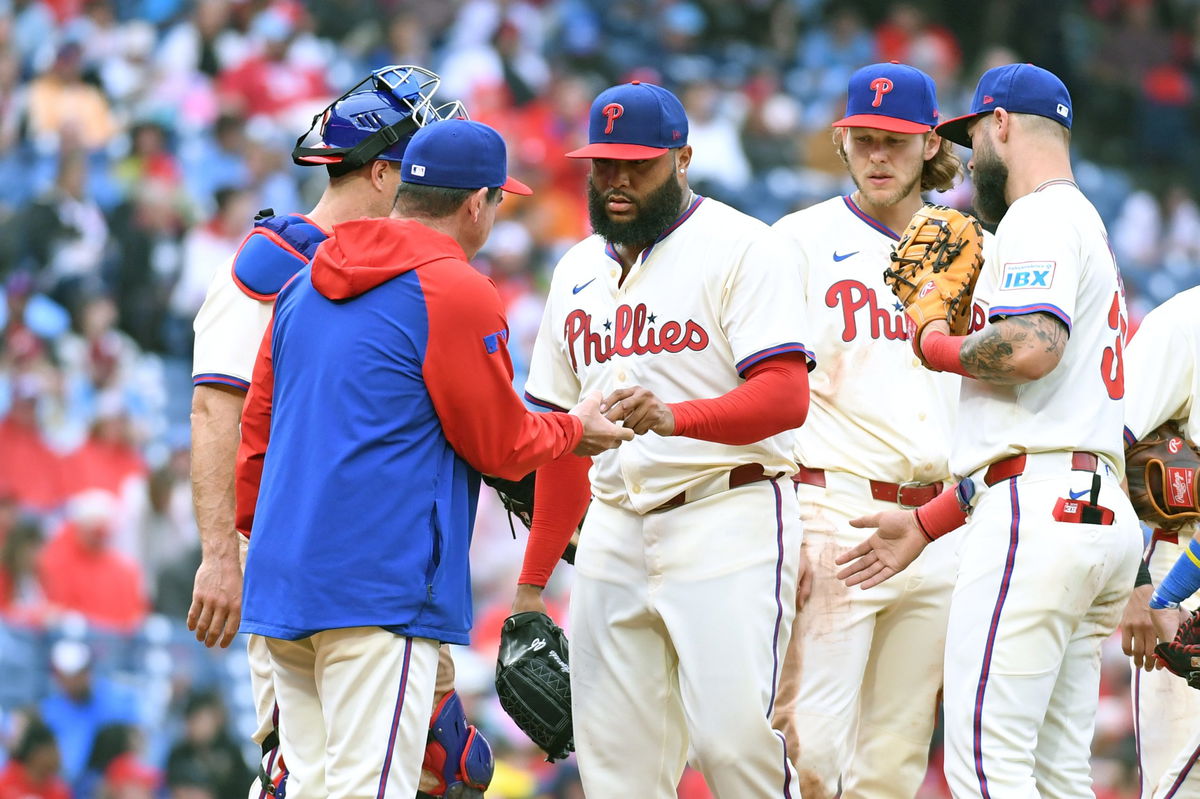
Imago
Image: IMAGO

Imago
Image: IMAGO
Alec Bohm grounded into a game-ending double play. Bryce Harper sat idle with a wrist injury. The Phillies were swept by the Pirates, a series many thought would serve as a reset, not a reckoning. As the offense sputtered to eight runs over five straight losses, frustration rippled beyond the clubhouse and into the front office. The cries for a fix aren’t just about winning now, they’re about avoiding the mistakes of the past. Chief among them: trading away the next Logan O’Hoppe.
Watch What’s Trending Now!
O’Hoppe’s name still stings in Philly circles. Once a promising homegrown catcher, he was sent to the Angels for Brandon Marsh—a move that, in hindsight, left the Phillies with a solid outfielder but cost them a potential All-Star bat behind the plate. Now, with the core trio of Marsh, Bohm, and Bryson Stott failing to elevate, the pressure is mounting. This time, the front office can’t afford to let the next O’Hoppe walk out the door.
“You don’t trade away the next Logan O’Hoppe at the deadline,” Philly columnist David Murphy warned recently. It’s a clear shot across the bow, one aimed directly at Dave Dombrowski’s desk. The front office has to decide: trust their next wave of talent or cash it in for short-term help.
ADVERTISEMENT
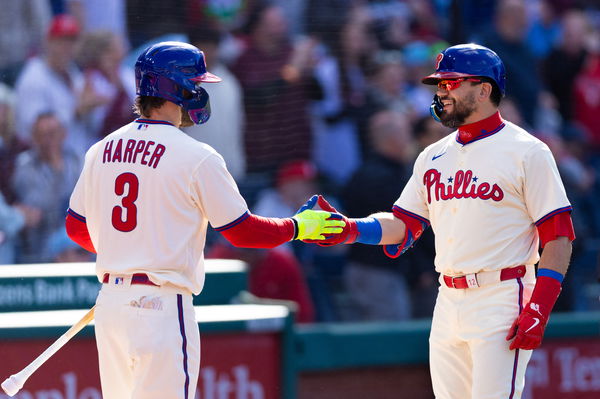
Imago
And that brings us to Otto Kemp. The 25-year-old infielder wasn’t drafted, but he climbed through the system on grit, plate discipline, and sneaky power. He recently got the call to the majors, quietly but notably, as the Phillies look for internal sparks. The front office sees him as a candidate to break the cycle: a cost-controlled, high-OBP hitter who could produce now and develop into a long-term asset. He’s not alone. Justin Crawford, Aidan Miller, and Gabriel Rincones Jr. all hover just below the surface, players with upside who might be either key pieces of the next core or trade bait in July.
The stakes? Immense. The Phillies are sitting on a $300 million roster that’s aging fast and producing inconsistently. The farm system, long criticized for underdelivering, is finally bearing fruit. But as the trade deadline nears, the front office faces a familiar temptation: use that fruit to patch holes instead of letting it ripen. The message this time? Don’t repeat history.
The sentiment is loud and clear. Phillies leadership must choose wisely and quickly between trusting their player development or gambling, again, on immediate fixes. Because this time, fans will remember who they let walk.
ADVERTISEMENT
One swing, no spark: Alec Bohm’s double play defines Phillies’ slide
Alec Bohm stepped into the box on Sunday afternoon with two runners on, one out, and the game begging for a hero. The Phillies were down 2-1 in the ninth, desperate to avoid a sweep by the Pirates in what was supposed to be a “get-right” series. Instead, Bohm swung at the second pitch and grounded into a soul-crushing double play, killing the rally, the comeback. And maybe the illusion that this team can lean on its core when it counts.
ADVERTISEMENT
The numbers make the moment sting even more. He hasn’t driven in a run since June 1 and has just one extra-base hit in that span. That Sunday double play wasn’t an outlier, it was a trend. On a team that’s scored eight runs in its last five games, Bohm’s bat has gone silent when the noise was needed most. And it’s not just him. The trio of Bohm, Stott, and Marsh has combined to hit .193 (18-for-93) over the last 10 games, nine of them losses.
What made Bohm’s moment hurt more was its finality. No long at-bat, no foul-off fight, no drama. Just a routine two-hopper and a slow walk back to the dugout. For a player once praised for his mental toughness and improved plate discipline, Bohm looked unsure and tight, like a guy pressing under expectations. And in a clubhouse suddenly stripped of Harper’s presence and Alvarado’s fire, the pressure to deliver is real.
Top Stories
Craig Breslow Told to Copy Dodgers’ Mookie Betts Masterstroke as Bo Bichette Market Spirals Out of Control
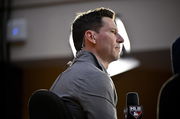
Scott Boras Accused of Playing Blue Jays as Tatsuya Imai’s Market Spirals Into Chaos Ahead of Deadline
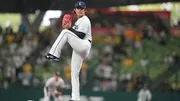
Yankees Told to Shield Aaron Judge as Reluctant Brian Cashman Stands Firm on Cody Bellinger Deal

Angels Told to Go All-In on Japanese Talent in Offseason After Major Anthony Rendon Decision
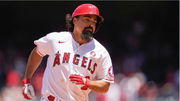
Calls Mount to Fire David Stearns as Marlins Outbid Mets for 32-Year-Old Trade Target
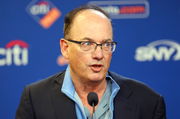
That final swing didn’t just end a game. It told the story of a team still waiting for someone from its young core to rise above the slump and take control.
ADVERTISEMENT
ADVERTISEMENT
ADVERTISEMENT
ADVERTISEMENT

